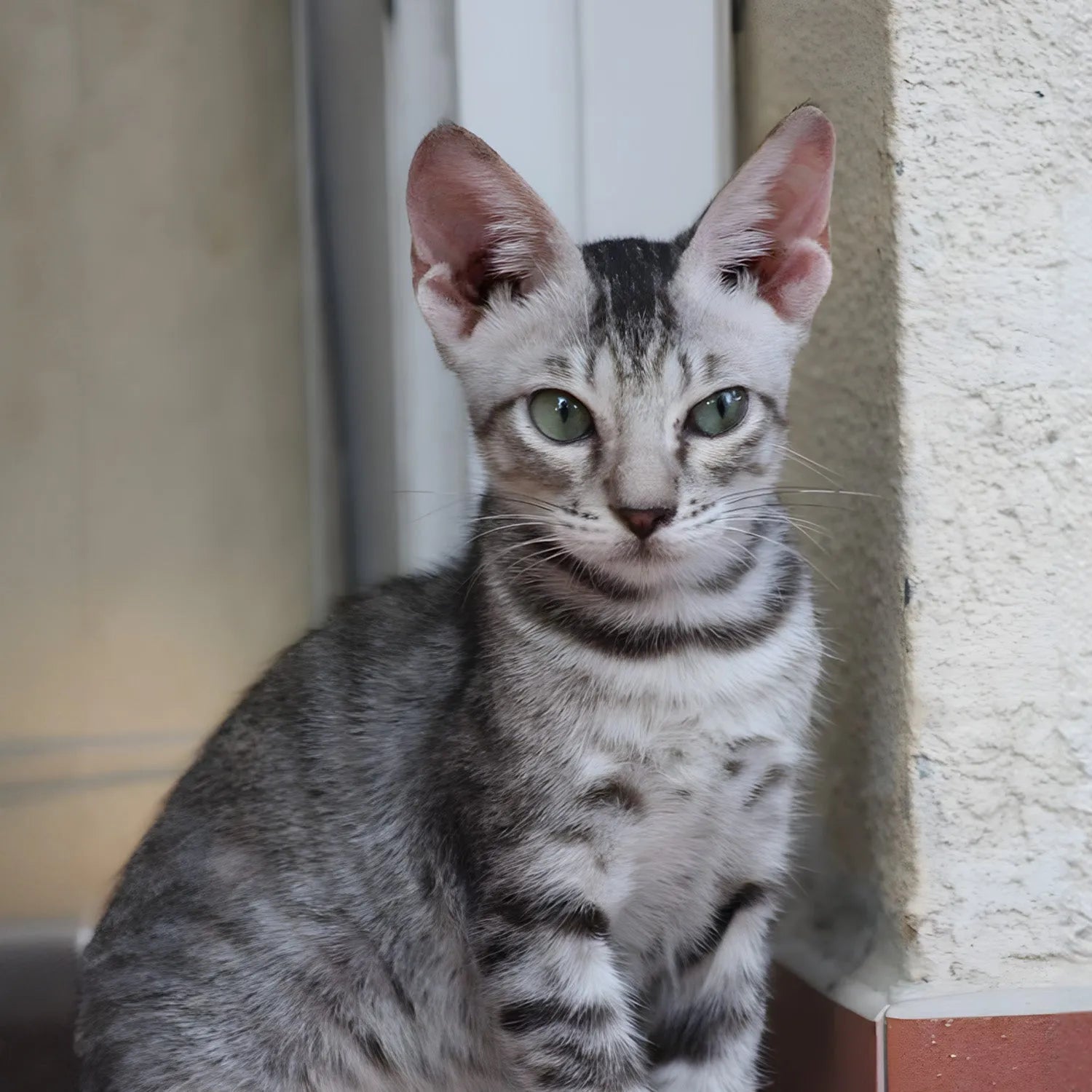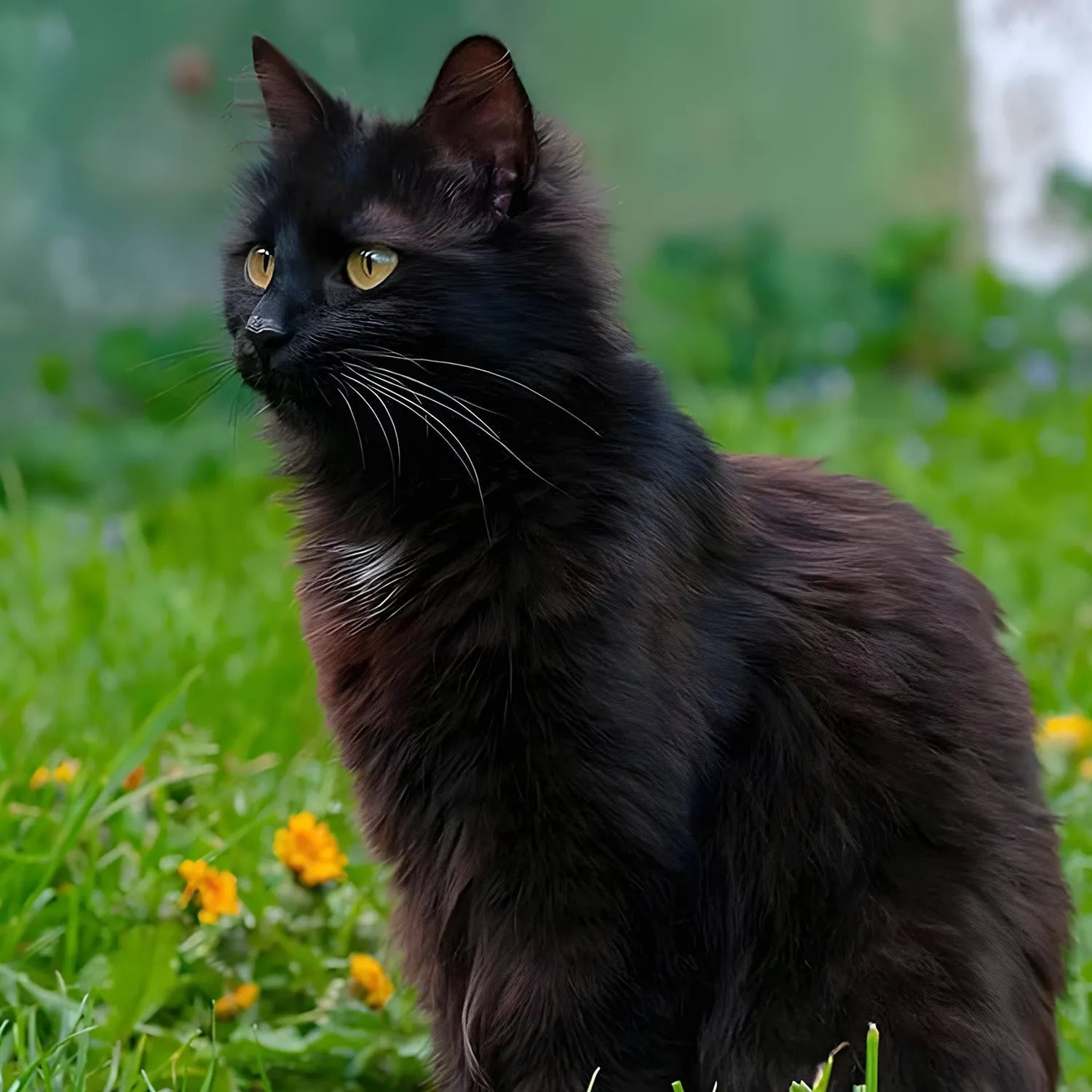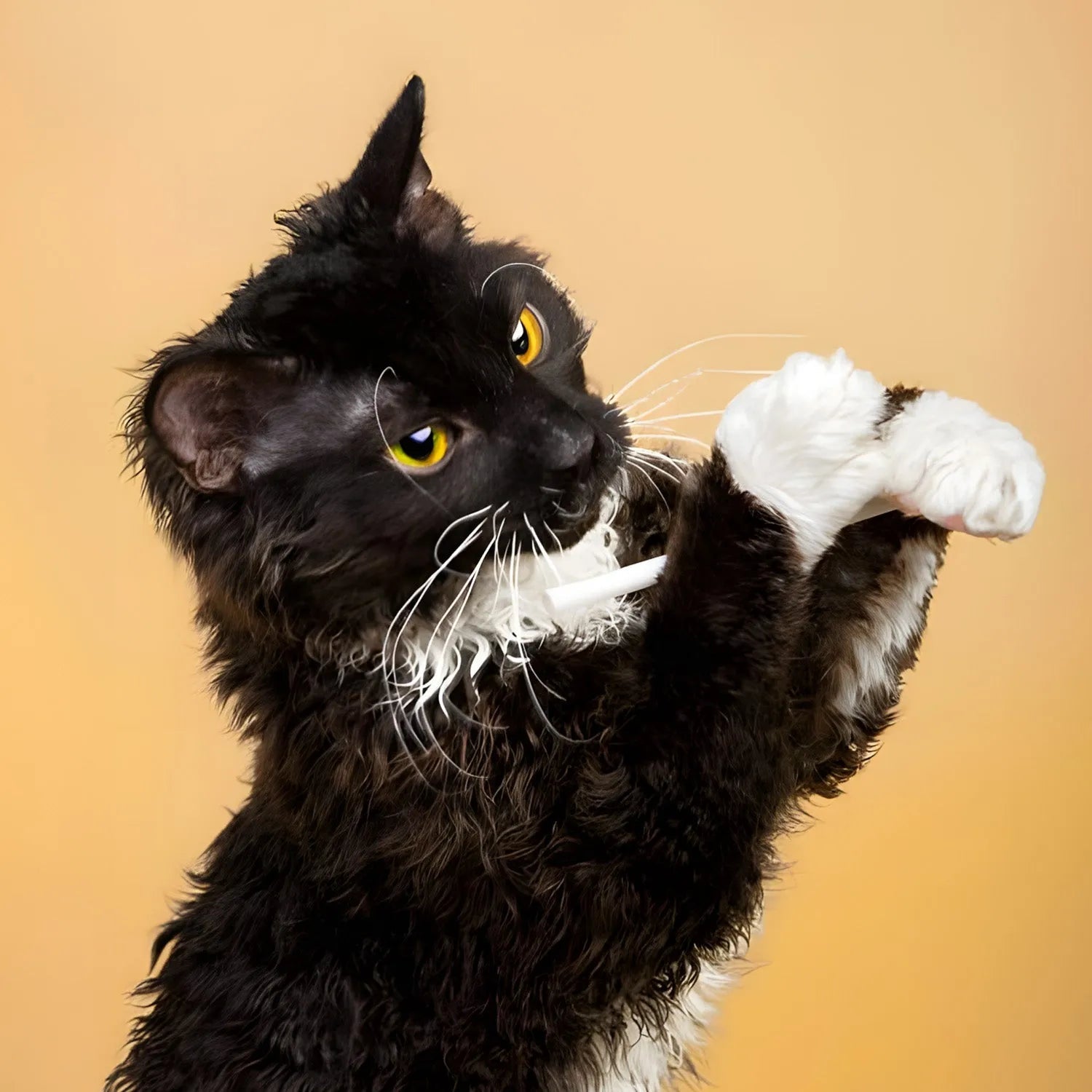German Rex: The Playful and Curly-Coated Feline
Introduction
The German Rex is a rare and distinct breed known for its curly coat, playful nature, and strong bond with its human companions. Often compared to the Cornish Rex, the German Rex also features a soft, wavy coat but has its own unique lineage and characteristics. If you’re looking for a cat that’s full of energy, incredibly affectionate, and loves being the center of attention, the German Rex might be the perfect fit for your home. In this blog, we’ll explore the German Rex’s lifestyle, behavior, grooming needs, trainability, and how it interacts with humans and other pets.
Ratings (1-5)
-
Environmental Adaptability: 4
-
Food Consumption: 3
-
Need for Companionship: 5
-
Trainability: 5
-
Tolerance of Children: 5
-
Ease of Domestication: 5
History and Origins
The German Rex breed was discovered in 1947 in East Germany when a curly-coated cat was found on a hospital’s grounds. This cat, named Lämmchen, became the foundation of the German Rex breed after breeders recognized the genetic mutation that caused its curly fur. The breed shares some similarities with the Cornish Rex, but the mutation in the German Rex developed independently. Over the years, the German Rex gained recognition for its friendly, energetic personality and its unique coat. Although still a rare breed, the German Rex has a dedicated fan base that appreciates its playful nature and striking appearance.
Physical Characteristics and Colors
The German Rex is a medium-sized cat with a slender yet muscular build. Its most distinctive feature is its curly coat, which is soft, dense, and plush to the touch. Unlike most cats, the German Rex has very little guard hair, giving its coat a velvety feel. This breed comes in a variety of colors and patterns, including solid, tabby, tortoiseshell, and bicolor. The breed’s head is round, with large, expressive eyes and prominent cheekbones, giving it a sweet and approachable appearance. The ears are medium-sized and set high on the head, adding to the breed’s alert and curious expression.
Lifestyle and Behavior
German Rex cats are known for their playful, energetic personalities. They are incredibly active cats that enjoy jumping, climbing, and exploring every corner of their environment. German Rexes are often described as "clownish" due to their love of performing acrobatic feats and engaging in playful antics. Despite their high energy levels, they are also incredibly affectionate cats that form strong bonds with their human companions. German Rexes thrive on interaction and are happiest when they are involved in every aspect of their owner’s life. They are known to follow their owners from room to room, always eager to be part of the action and are particularly good at entertaining themselves.
Trainability and Intelligence
German Rex cats are highly intelligent and can be trained to follow commands, perform tricks, and even walk on a leash. They are quick learners and respond well to positive reinforcement techniques, such as treats and praise. Because of their energetic nature, German Rexes benefit from interactive toys and activities that challenge their minds and bodies. Training sessions with German Rexes are often a rewarding experience, as they enjoy mental stimulation and love to learn new tricks. Their intelligence and curiosity make them natural explorers, and they benefit from having a stimulating environment that encourages play and problem-solving.
Social Behavior and Human Interaction
German Rex cats are incredibly social and form strong bonds with their human families. They are affectionate cats that enjoy being involved in every aspect of their owner’s life. German Rexes are particularly known for their love of attention, and they will often follow their owners from room to room, eager to be involved in family activities. They are also quite vocal and will communicate with their owners through a variety of chirps, meows, and purrs. German Rexes are happiest in environments where they can receive plenty of affection and attention, making them ideal for individuals or families who are home often and enjoy spending time with their pets.
Compatibility with Children and Other Pets
German Rex cats are excellent companions for children due to their playful and tolerant nature. They enjoy interactive play and are generally patient with children’s antics, provided they are treated with respect. Additionally, German Rexes tend to get along well with other pets, including dogs, as long as they are properly introduced. Their sociable and adaptable nature allows them to integrate well into multi-pet households, and they often enjoy the company of other animals as much as they do humans. German Rexes are known for their ability to form strong bonds not only with their human families but also with other pets in the household.
Grooming and Care
The grooming needs of a German Rex are minimal due to their short, curly coat. Weekly brushing is usually sufficient to remove loose hairs and keep their coat looking shiny and healthy. However, care must be taken not to over-brush, as their fine coat is delicate and can easily be damaged. Regular dental care, ear cleaning, and nail trimming are also important to maintain their overall health. Despite their low-maintenance grooming needs, German Rexes enjoy the bonding time that grooming sessions provide, and it can be a great way to strengthen the bond between cat and owner. Bathing is generally not necessary unless the cat gets particularly dirty, as German Rexes are generally good at keeping themselves clean.
Health and Lifespan
German Rex cats are generally healthy, but like all breeds, they can be prone to certain genetic conditions. These may include hypertrophic cardiomyopathy (a form of heart disease) and dental issues. Regular veterinary check-ups and a balanced diet are essential to maintain their health. With proper care, German Rex cats can live up to 12-16 years or more. Regular monitoring and preventive care are important to ensure a long and healthy life for your German Rex cat.
Environmental Adaptability
German Rex cats are adaptable and can thrive in various living environments, although they are particularly well-suited to indoor living due to their fine coats, which make them more susceptible to temperature changes. They are known for their resilience and can adjust well to different climates and household settings. Whether in an apartment or a house, German Rex cats will find ways to entertain themselves and stay active. However, they do best in environments where they can receive plenty of attention and interaction from their owners. Their adaptable nature makes them well-suited to a wide range of living conditions, but they require a stimulating environment with plenty of opportunities for physical activity and mental engagement.
Feeding Requirements
A balanced diet is crucial for maintaining the German Rex cat's health and energy levels. High-quality cat food that is rich in protein is recommended. Fresh water should always be available. Because German Rexes are highly active, they may require more calories than the average domestic cat to support their energy levels. Consult your veterinarian for specific dietary recommendations based on your cat's age, weight, and health needs. Monitoring their diet to prevent obesity is essential, as German Rexes can be prone to overeating if not properly managed.
Conclusion
The German Rex is a playful, intelligent breed that brings energy and companionship to any household. Their intelligence, affectionate nature, and striking appearance make them wonderful pets for families and individuals alike. If you're looking for a cat that will form a deep bond with you and keep you entertained with its lively antics, the German Rex might be the perfect fit for you.
For more information about other cat breeds and pet care tips, stay tuned to our blog!
References:
-
Muller, H. (2021). "The Playful and Curly-Coated German Rex Cat." *Journal of Feline Studies*, 35(3), 201-215.
-
Richards, A. (2020). "Caring for Your German Rex Cat: A Comprehensive Guide." *Cat Lover’s Magazine*, July issue, pp. 30-40.
-
Harris, E. (2019). "Health and Wellness in German Rex Cats." *Veterinary Journal*, 79(2), 123-137.


